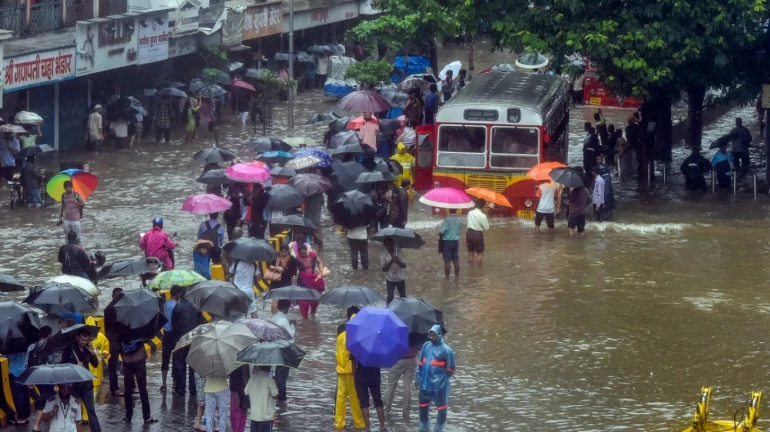
Mumbai is witnessing a spike in Monsoon related illnesses as the season is around the corner. The number of cases this year is shooting up to the sky in comparison to last two years. In addition, there could be possibility of further rise in cases. Hence, doctors are advising to take necessary precautions for the waterborne diseases.
According to the Brihanmumbai Municipal Corporation (BMC)’s public health department statistics, Mumbai reported 335 cases of Leptospirosis and 1744 cases of Gastroenteritis in June. It includes diseases like malaria and upper respiratory infections.
What Is Leptospirosis and Gastroenteritis?
Leptospirosis is a disease brought on by an infection with the Leptospira bacteria. Leptospira can enter your body through cuts or abrasions on your skin, as well as through your eyes, nose, or mouth. Leptospirosis is a zoonotic illness, which means it can spread between people and animals. It can be contracted through direct contact with urine or reproductive fluids from affected animals or if one comes in contact with contaminated water or soil.
Meanwhile, diarrhea and vomiting are symptoms of the fairly common disease known as gastroenteritis.
In an exclusive conversation with Mumbai Live, Dr. Aniket Mule, Consultant Internal Medicine, Wockhardt Hospital Mira Road, said increased stagnant water bodies because of constant ongoing construction and deforestation, increased population of Rodents, increased consumption of outside food, and breach in hygiene are major reasons behind the spike in Leptospirosis and Gastroenteritis.
The civic body officials will be studying if the patient tested positive for one or two conditions; the patient’s medical history, especially exposure to Leptospirosis. They believe that the study could reveal patterns that could be helpful in planning Leptospirosis prevention strategies.
Speaking about the reason behind the spike in Gastroenteritis and Leptospirosis cases, Dr. Kirandeep Kaur, Consultant of Apollo Clinic, Mumbai said, “During the monsoon season, there is an increased risk of vector-borne diseases due to the proliferation of mosquitoes and other disease-carrying vectors. These diseases are prevalent in people who consume local street-side food, specifically during the rainy season, where the hygienic quality of the water is compromised. Factors contributing to the rise in gastroenteritis cases include consuming water or food contaminated with fecal matter. The causative agents of gastroenteritis, such as norovirus, rotavirus, Escherichia coli, or Salmonella dwell in contaminated, unhygienic and stale food and dirty water.”
“Factors contributing to the rise in Leptospirosis cases include contaminated water sources as Leptospira bacteria can survive in water and moist environments, especially those contaminated with urine from infected wild and domestic animals, such as rats, mice, or livestock. Heavy rainfall, flooding, or natural disasters can lead to the displacement of infected animals who can continue to excrete bacteria into the environment and cause contamination of water sources, increasing the risk of leptospirosis transmission,” she further added.
On the other hand, Director of Medical Affairs (Infectious Diseases), HaystackAnalytics, Dr. Mahua Kapoor Dasgupta said, “Poor sanitation aggravated by the monsoons pose a major problem for many people, particularly those who don't have access to clean drinking water. The increased mosquito population, the poor sanitary conditions, and the increasing flea population due to the dirt and filth create a perfect storm for the sudden increase in the burden of tropical infections. Intake of contaminated food and water leads to a rise in the number of gastroenteritis cases. Sudden temperature dips can even lead to a surge in upper respiratory infections like flu. Infections are preventable by adherence to basic hygiene.”
Private hospitals have also reported a surge in dengue and respiratory cases. The report further informed that 90 cases of swine flu, 353 dengue cases, and 141 hepatitis cases were recorded last month in the city. However, there have been no deaths due to monsoon illness so far.
Dr. Manish Pendse, Senior Consultant, Internal Medicine, Medicover Hospitals, Navi Mumbai, said, “Mosquitoes are the primary source of carrying infections like malaria and dengue and contaminated water is a major concern when it comes to typhoid and gastroenteritis. The best way to prevent this is by using ways to avoid water stagnation, the use of mosquito-repellent creams. Housing societies should be made aware of problems caused by stagnant water, and the underground tanks of water storage should be periodically checked.





